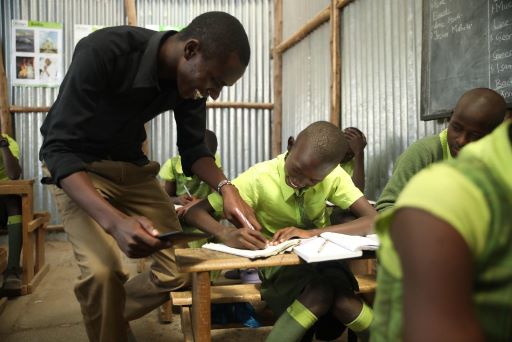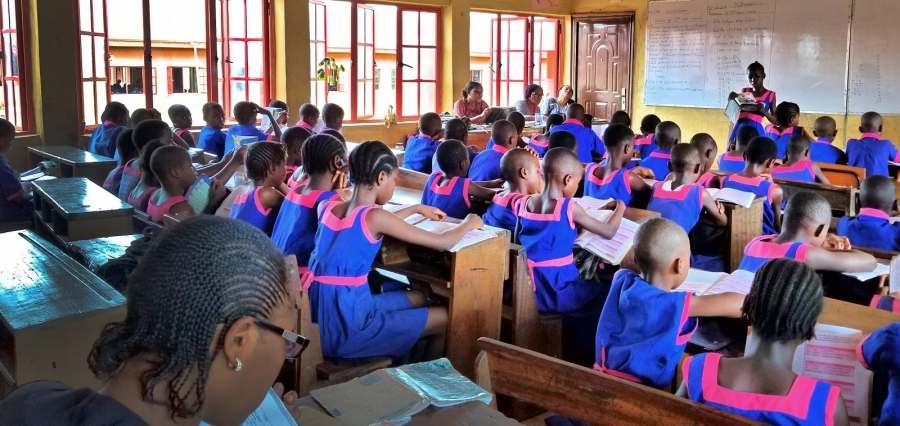Former British Prime Minister and now chair of the global Education Commission, Gordon Brown, has called the learning crisis the ‘civil rights struggle of our time’. World leaders are rightly calling on every sector to join the fight — to use all the tools and resources at our disposal to tackle this effectively. To win this struggle would prevent another generation from being deprived of basic abilities and reduce many drivers of instability and conflict.
Globally there is a shortage of about 69 million teachers and the teachers who are working in low or middle income countries are frequently under supported. Often they teach in rural, remote areas; many of the classrooms have poor learning materials and many teachers feel abandoned and can struggle to understand for themselves the content that they are teaching.
These are all very significant challenges, but not insurmountable. There is a global effort underway to tackle this, centred around UN Sustainable Development Goal 4 for 2030. On current trajectories the SDG4 target will be missed, but progress will be made towards it.
A social enterprise called Bridge International Academies, or Bridge, is focused on helping to achieve this UN goal of quality education for all in Africa and Asia. We serve communities living in extreme poverty and have helped to educate three quarters of a million children over the last ten years at nursery and primary level. Bridge is significantly improving learning outcomes by putting teaching best practice straight into the hands of local teachers around the world, using technology and in-person teacher training and coaching. The vast majority of the work Bridge does is with government teachers in government schools, and some of the work is in our own community schools and nurseries.

A Bridge teacher in class at Bridge International Academies.
After government teachers have been through an intensive up-skilling and training scheme, they are ready to use hand-held tablets that give them access to very high quality lesson guides based on their local curriculum. They are trained to use best practice teaching techniques. In addition, we support them with regular in-person coaching inside the classroom every one or two weeks. In this way, both technology and continuous professional development help these teachers to deliver more child-centred lessons that result in higher learning outcomes for children.
Our approach is to treat learning as a science as we implement best practice across all the schools we run or support. We are focused on how children learn, tweaking, adapting and iterating lessons and teacher training in the light of data and evidence, to make sure children learn as much as possible.

A government school classroom in Nigeria supported by Bridge training and technology.
By collecting information at scale on what lessons work best, and how children learn, local academics in-country work to improve lessons for all children. The approach means that not only can a few schools be served in a few areas but that tens of thousands of schools and millions of children can benefit anywhere in the world.
The use of technology to deliver quality education is bearing fruit in children’s lives. The results have been very encouraging. Kenyan pupils who sat their primary school leavers’ exam have surpassed their peers in other schools for the four consecutive years. In Uganda children have outperformed the national average in the two consecutive years they have sat the national exam. Children’s learning gains in Liberia, where we support government schools, showed pupils learning at twice the speed of their immediate peers. In Nigeria, a DFID report showed equity of high attainment at Bridge schools for children from all types of socio-economic backgrounds. Children in Bridge supported government schools are learning far more than previously. In India we are running community schools in the southeast region in partnership with the local government.
Social enterprises doing this sort of work is an idea supported by the majority of the UK public, and it’s also now part of the official UK Aid strategy for education. From the poorest regions of India to the low-income communities of Nairobi and even areas affected by the terrorist group al-Shabaab, well-supported teachers are thriving and making an impact.


















